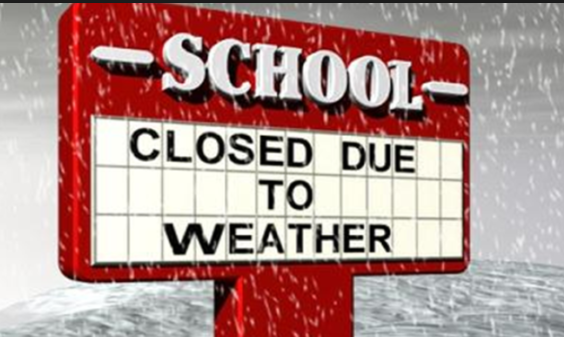By Celeste Amron and Elise Bilodeau
When there is inclement weather in the forecast, Alexandria City Public Schools (ACPS) must decide the best precautions to take in order to ensure the safety of students and staff. Interim Superintendent Lois Berlin said, “It is a team effort that takes a great deal of leg and vehicle work and communication.”
The Director of Transportation begins the process by driving around Alexandria to assess the conditions of the roads and sidewalks and determine whether they are safe walk or drive on. Next, at 4:30 a.m., the Director of Transportation, ACPS Chief Operating Officer, and Berlin discuss the conditions in order to make their decision on whether schools will be open, closed, or delayed. “If it is a light snow … and we know from forecasts that it will stop early enough to clear our school sidewalks and parking lots, and that the temperatures will rise later in the morning, we determine that a late opening is appropriate,” Berlin said. “When snow is predicted to continue falling through the morning and possibly into the afternoon, we close for the day.”
ACPS also confers with officials from neighboring school districts such as Arlington County Public Schools, and speaks to Alexandria City officials about road clearing, road treatment, and the condition of school parking lots.
If temperatures or windchill are forecasted to be in the single digits or below, ACPS considers closing schools. However, school closings and delays are more often called because of precipitation than for temperature.
Decisions are mainly based on conditions within Alexandria. “I clearly understand that staff come from far and wide, but I have to base the decision for our schools on the conditions in Alexandria City,” said Berlin.
Essential personnel, such as building engineers and other staff members who take care of the building, are expected to report to school as soon as safely possible when schools are closed. Administrators and support staff must also come to school at regular time when there is a two hour delay. “We still have to come in and check out the conditions of the building,” Principal Peter Balas said.
When only one school in ACPS closes, such as when George Washington Middle School’s pipes burst on January 9, the school does not have to make up those missed days. However, Berlin said she “works with the school’s administration and our Office of Curriculum and Instruction to determine how to best make sure that students receive the instruction they need to finish a successful year.” This means that if students from that school miss too many days of instruction, ACPS must decide whether days need to be made up.
Also, if T.C. misses too many red or blue block schedule days, then Balas and other administrators, such as the department heads, must decide whether to revise the calendar. “If it gets to the point where we keep missing blue days we would have to think about [revising the calendar],” Balas said.
There is often a lot of controversy about the more frequent closings of Fairfax County Public Schools (FCPS). FCPS often closes more due to their approximately 400 square miles in comparison to Alexandria’s 15 square miles. FCPS also has the largest bus fleet in the United States, so they must ensure that everywhere in the county is safe enough for buses to drive. Fairfax can not close schools by region because some students attend schools across Fairfax for special purposes.
“I get criticized when [ACPS doesn’t] close, which is funny because it’s not my decision,” Balas said, “I have nothing to do with [it] at all.”
“Making weather decisions as to close, open, or delay is my least favorite thing to do. There is always someone who is unhappy with the decision and many will second guess the decision. I just want everyone to understand that it is a team decision and one that involves lots of moving parts,” Berlin said.

